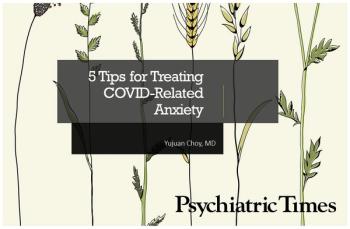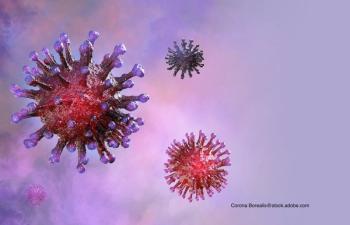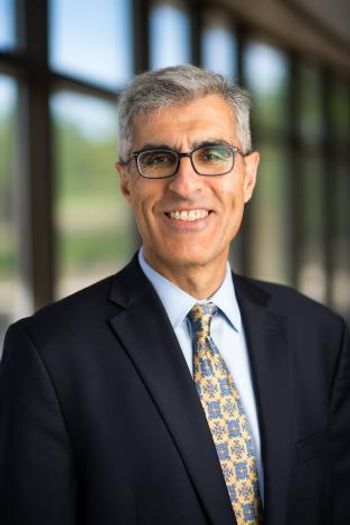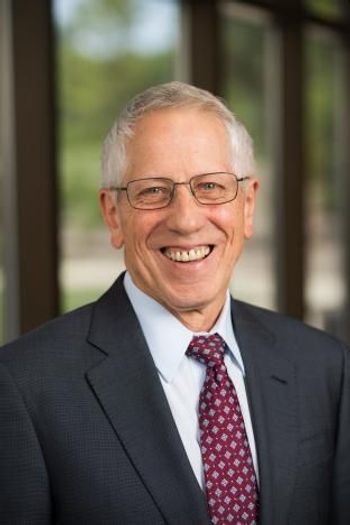
This video presents Information that may help you and your patients deal with the pandemic.

This video presents Information that may help you and your patients deal with the pandemic.

The current COVID-19 crisis is a wake-up call to how dangerously our health care workforce has been chronically over-stretched. Effective solutions are discussed.

A constellation of factors contributes to heightened anxiety symptoms associated with the pandemic. The author offers simple steps to help patients alleviate stress.

Shifting the internal narrative can enhance resilience.

Guidance for mental health care practitioners to better explain the complexities of the current crisis to their patients.

Yujuan Choy, MD, Chief Psychiatrist at UC Irvine Counseling Center, provides tips for working with patients whose anxiety symptoms disrupt their quality of life.

I’m feeling the heat. Not the high temperature associated with an infection but the hot flush that is a psychosomatic symptom of anxiety.

FaceTime, Skype, and other video chat functions are the new normal in the COVID-19 era, and allow this community psychiatrist serve the underserved.

This has been an extremely challenging quarantine season for me, not so much because of the restrictions posed by the mandate to stay home, as I am still going to the hospital daily for patient rounds; my biggest struggle has been watching the toxic effects of the COVID-19 pandemic on many in my immediate social circle.

An announcement from the Association of American Medical Colleges (AAMC) regarding medical student clinical rotations during the COVID-19 pandemic effectively halted medical student education on March 17th.

A poem titled Loves by American poet Stephen Dunn inspired me to write a poem about everything I love about my work as a doctor.

Patients with bipolar disorder often find it difficult to maintain schedules and routines, all the more challenging with the COVID-19 pandemic. More in this video.

For all educators, this is a time of great uncertainty, yet we must continue to engage and encourage students interested in pursuing careers in psychiatry, as well as facilitate comparable virtual clinical experiences for students

Gregory W. Dalack, MD, Chair of the Department of Psychiatry at University of Michigan School of Medicine, discusses the challenges of leading an academic department in the midst of a pandemic.

The cure should not be worse than the disease; so must we be cautious about our response to COVID-19. More in this video with Harold J. Bursztajn, MD.

Why poetry? As the great Israeli poet Yehuda Amichai said, “When words fail, that’s when poetry begins.”

Nurses are on the front line in the care of COVID-19 patients, and for many years Dr Berlin has admired and resonated with the poetry of nurse practitioner Cortney Davis. Here: a recitation of two of her poems.

The doctors, nurses, aids, food staff, and janitors are among the frontline heroes of the COVID-19 pandemic. They know its ravages best and are most at risk. We mustn't let them down.

In a time of panic, despair, and demoralization, art continues to inspire the author's reflections as it has over the last 40 years. Here, he shares some images that he finds inspirational and helpful. Even in winter there is hope.

What is the nature of the virus turning the world upside down? Dr Sheldon Preskorn shares critical clinical information to better understand the virus, testing, and what might the future hold as we look to turn the corner in this pandemic.

Local, state, and federal officials are rushing to implement massively life-altering measures in the current pandemic even as we enter a situation that is still poorly understood.

Dr John Greden discusses many issues around college mental health and the upheaval the COVID-19 pandemic is causing in this population.

Strange Fruit was written by a Jewish schoolteacher after seeing a disturbing picture of a black man, lynched in the South. But what does this song have to do with the Coronavirus pandemic?

A running theme throughout the virtual meeting was the COVID-19 pandemic and the need for mental health treatment now and after the immediate crisis subsides, both for the public and health professionals.

As we progress further in the COVID-19 crisis, it is even more important for mental health professionals to take care of themselves, so they can be available to provide a much needed service in the best way possible to patients. More in this podcast.